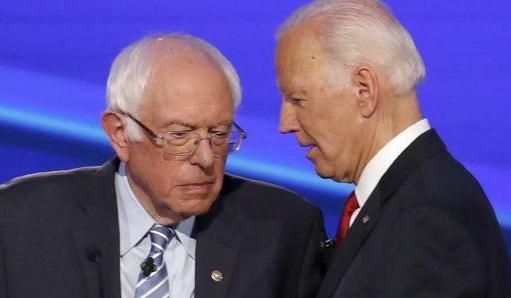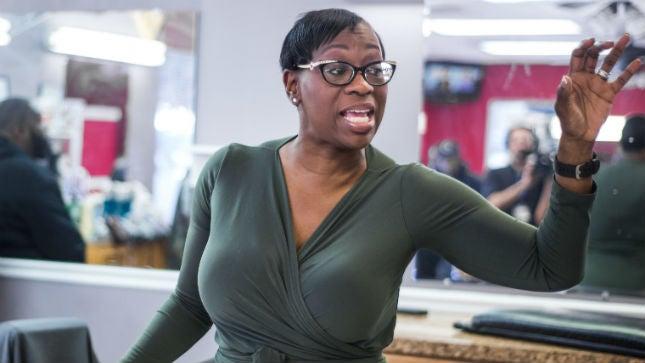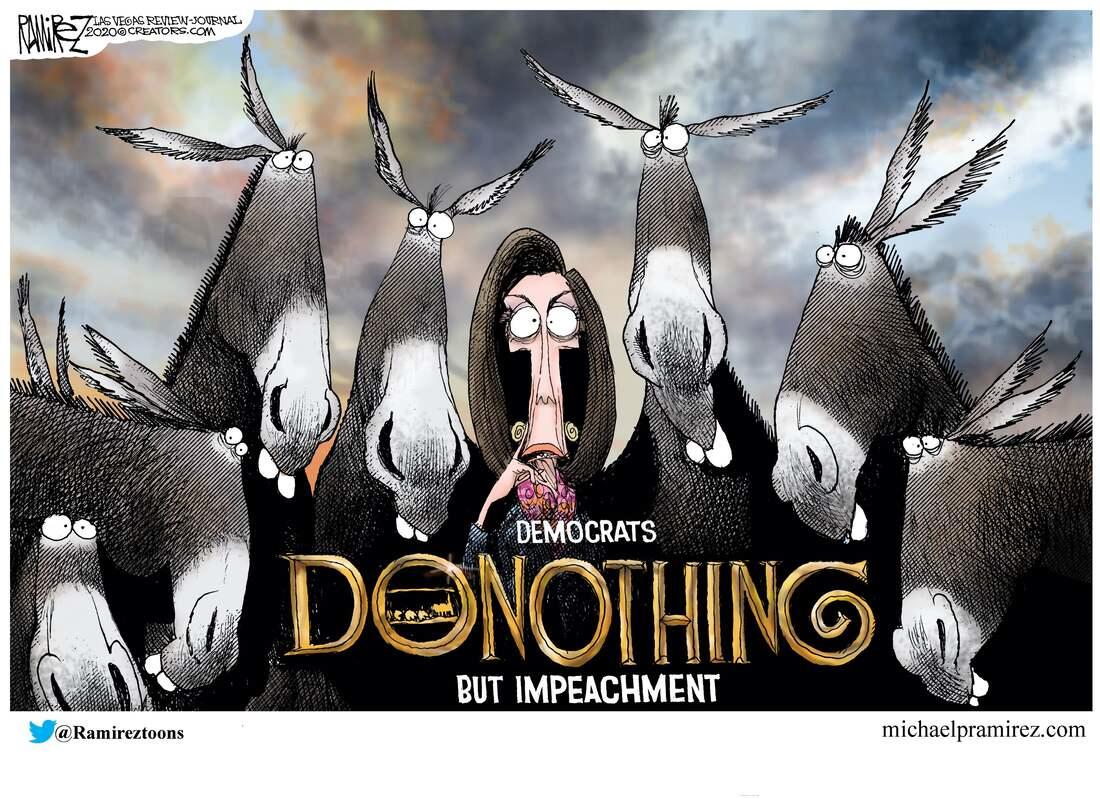When the White House released its formal response to the House impeachment, it repeated a frequent claim of the president’s defenders: “This is a brazen and unlawful attempt to overturn the results of the 2016 election.” The president himself had set the tone some time ago by tweeting, “what is taking place is not an impeachment, it is a COUP.”
This is not an unusual move for defenders of an embattled president. Nancy Pelosi was among a group of Democratic politicians who once claimed that the impeachment of President Bill Clinton was “tantamount to overturning the will of the American people.” Back then, it was Jerrold Nadler who declared that the House majority was “participating in a thinly veiled coup d’etat.”
I have a forthcoming article that tries to take these sorts of arguments seriously and determine how much credence we should give them. There is obviously a lot of meaningless bluster in this kind of rhetoric, but presidential defenders are pointing to a real issue. In a political culture that emphasizes the importance of partisan political elections, removing a president by congressional action is not the same as removing a district court judge. Advocates of presidential impeachment and removal bear a very high argumentative burden to justify such an extraordinary act, not just because the presidency is an important office but because the president was elected by the people and will eventually be held accountable by the people for his actions.
Nonetheless, all the talk of overturning elections and coups is over the top.
The impeachment power exists within the constitutional scheme, and it exists for a reason. Like any other constitutional power, it can be mishandled and abused, and the people will eventually have their say about that as well. But rhetoric of overturning elections suggests that the impeachment power can never be legitimately used against a president, which would surely be a dangerous mistake. And if impeaching a president is tantamount to overturning the will of the people who elected him, then what other actions that a Congress might take to impede a president’s plans should fall under the same shadow? Can the Senate refuse to confirm his judicial appointees? Can Congress refuse to fund his border walls? Can the Supreme Court strike down the president’s signature policy initiative? Elections have consequences, but the American constitutional system is not reducible to presidential plebiscites.
There are unique circumstances in which a presidential impeachment might be understood to have such dramatic consequences for the workings of a democracy. If the vice president were the partisan rival of the president, as he might have been under the original 1787 Constitution, then it is not hard to imagine a corrupt bargain between the vice president and his supporters in Congress to remove the president. The Twelfth Amendment saved us from that problem. If the office of the vice president were vacant such that a member of the congressional majority might succeed to the White House upon a presidential removal, as was the case when Andrew Johnson was impeached in 1868, then defenders of a president might have grounds for complaint.
In normal circumstances, of course, presidential removal would simply result in the ascension of the president’s handpicked partisan running mate. If Bill Clinton had been replaced by Al Gore in early 1999, the Democratic Party and its voters might well have been better off. The prospect of Newt Gingrich plotting to install Al Gore in the White House would have been a strange sort of coup indeed.
Perhaps there are situations in which passing the baton to the vice president does more closely resemble an effort to undo the results of an election. If the vice president represented a radically different political faction than the president, then supporters of the president might well call shenanigans if the vice president conspired with allies in Congress to depose him. If Democrats had controlled Congress in 1865 and attempted to unseat Abraham Lincoln in order to turn the presidency over to Andrew Johnson, then Republicans would have had something to complain about.
Closer to home, we might imagine a uniquely charismatic and populist president who is loathed by the political establishment. If establishment politicians sought to remove that president so one of their own might be elevated to the head of the executive branch, then the voters who rallied to the populist might well have a gripe.
It is not implausible to think that Donald Trump and Mike Pence were not interchangeable for the average GOP voter in 2016. The spectacle of Nancy Pelosi and Mitt Romney joining hands to unceremoniously toss the tribune of the people out of the nation’s capital could well be disconcerting in ways that might have made less sense in the context of almost any other president. If the salient divide is not primarily partisan but rather populist or even Trumpist, then an impeachment might face unique legitimacy challenges.
Similarly, it would not be hard for supporters of President Barack Obama or of a President Hillary Clinton to spin a narrative in which those individuals have unique representative mantles that could not simply be passed on to Joe Biden or Tim Kaine if congressional leaders disfavored the people’s choice of president.
Through their own missteps, critics of a president can give greater credence to such accusations that an impeachment is an effort to overturn an election. If presidential critics reach for every possible vehicle or excuse to attempt to remove a president from the day of his election, one should not be surprised if supporters of the president greet an impeachment with greater than average skepticism. If presidential critics make little or no effort to reach across the aisle to build broad-based support for an impeachment, then it becomes harder to credit the impeachment as driven by anything other than partisan motives to cripple a presidency. If presidential critics cannot supply a credible constitutional rationale for an impeachment, then it becomes easier to dismiss an impeachment effort as partisan dirty tricks.
When those who chant “not my president” eventually succeed in impeaching that president, their arguments are likely to be discounted. Impeachments occur in a political context, and that context will necessarily affect how the impeachment is perceived. If Obama had committed grave offenses while in office that would have merited his impeachment and removal by a Republican-controlled Congress, birtherism conspiracy theories promoted by Donald Trump among others would have poisoned the well such that many Democrats would have doubted whether any impeachment inquiry was being made in good faith and was anything other than an attempt to effectively nullify the results of an election by rendering the president politically impotent if nothing else. Suggestions that the Senate should no longer be allowed to confirm an impeached President Trump’s judicial nominations, as if a President Pence would not have made the same nominations or that an impeached president no longer wields the power of his constitutional office, give the impression that nullifying the effects of a presidential election is precisely the point. Elections have consequences, and so does political rhetoric.
Republican politicians and conservative media figures have gone to great lengths to excuse or condone President Trump’s genuine misconduct, and the Trump White House—not unlike the Clinton White House—has attempted to delegitimate investigators and accusers in a scorched earth strategy to maintain power. They have attempted to portray Trump’s impeachment as not merely misguided or unjustified but as beyond the pale. In doing so, they attempt to provide the foundation for characterizing the impeachment as a kind of coup. The attempt is analytically flawed, but politically effective.
We find ourselves at a difficult juncture. Both critics and defenders of the president have too often undermined their own credibility and have done too much to foster a partisan antipathy that cannot be easily set aside or overcome. Both fear that the other side will not abide by election results and will seek to manipulate the electoral process and constitutional mechanisms to their own advantage. Both believe that their opponents do not respect the will of their voters. When Doug Collins complains that “liberal elites” are telling “millions of voters” that their preferences do not matter, he is both pointing to and reinforcing a divide that insists that an elected president represents only part of the country.
The legitimacy of a presidential impeachment depends on our ability to come together as Americans to investigate and deliberate over charges of presidential misconduct. If impeachments are instead seen as just another form of partisan constitutional hardball, then they will be seen as illegitimate and simply a continuation of the partisan electoral struggle itself. Political leaders can help create a political environment in which presidential impeachments can fulfill their constitutional function, but they can also create an environment in which impeachments are just another manifestation of constitutional dysfunction.
A presidential impeachment is not much like a coup and would rarely overturn the will of the people, but in a deeply partisan environment it is likely to feel that way.
from Latest – Reason.com https://ift.tt/36koJVV
via IFTTT



